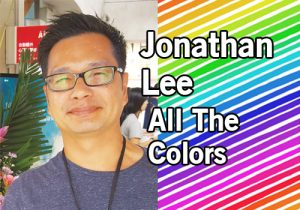The link between black history, ethnic studies and LGBTQIA+ liberation
 CONTRA COSTA COUNTY, CA (Feb. 16, 2024) — Since 2023, policymakers have introduced nearly 400 anti-LGBTQIA+ bills across the United States, largely targeting transgender and nonbinary youth.
CONTRA COSTA COUNTY, CA (Feb. 16, 2024) — Since 2023, policymakers have introduced nearly 400 anti-LGBTQIA+ bills across the United States, largely targeting transgender and nonbinary youth.
These bills limit the ability to update gender information on birth certificates and driver’s licenses; ban free speech by prohibiting drag performances, books and arts with queer themes; restrict gender-affirming health care for trans youth and incarcerated transgendered people; ban public accommodations; censor curriculum and force teachers and staff to out students; and include religious exemptions to undermine and weaken nondiscrimination laws by allowing employers, businesses and health-care facilities to turn away LGBTQIA+ people or refuse them equal treatment, and more.
These bills affect the emotional and mental well-being of BIPOC youth. A 2023 Trevor Project poll shows that 7 in 10 Black LGBTQIA+ youth reported negative impacts directly related to news of anti-LGBTQIA+ bills. This reflects their intersectional identities and racialized experiences as Black and queer.
It is, therefore, important that we counter this attack by affirming ethnic studies and, by extension, Black History Month as part and parcel of LGBTQIA+ liberation.
Harvard-trained historian Carter G. Woodson initiated Negro History Week in 1926. He selected to observe it during the February birthdays of Abraham Lincoln and Frederick Douglass, two pivotal figures who worked to end slavery and combat racism.
In 1976, President Gerald Ford established Black History Month, extending the observance to memorialize the legacy and contributions of African Americans. He called upon the public to “seize the opportunity to honor the too-often neglected accomplishments of Black Americans in every area of endeavor throughout our history.”
In October 2021, California became the first state to add ethnic studies as a high school graduation requirement. These efforts to make visible the histories often dismissed by mainstream grand narratives have been continuously attacked.
The confluence of the attack highlights the linkages among the intersectional liberations of being Black and LGBTQIA+.
This year’s Black History Month focuses on Black Americans in the arts. As such, the Rainbow Community Center wishes to acknowledge LGBTQIA+ Black artists:
- Gladys Bentley, performer during the Harlem Renaissance.
- Stormé DeLarverie, performer and activist who worked as a jumping horse rider with the Ringling Brothers Circus.
- Billie Holiday, singer.
- Lorraine Hansberry, playwright and activist, author of “A Raisin in the Sun.”
- Audre Lorde, self-described “Black, lesbian, feminist, mother, poet, warrior.”
- Sarah Huny Young, visual artist and photographer.
- James Baldwin, writer and critic.
- Alvin Ailey, choreographer.
Tourmaline, filmmaker and activist, best known for documenting the lives of transgender rights activists Marsha P. Johnson and Sylvia Rivera, two central figures in the Stonewall uprising of 1969.
Centering Black LGBTQIA+ histories will directly uplift BIPOC queer youth. In 2021, Stanford University research found that students who take ethnic studies are more likely to graduate high school and enroll in college. Similarly, data shows that college students who enroll in an ethnic studies class are more likely to complete their studies and graduate.
Ethnic studies create a relevant curriculum that allows BIPOC students to approach an academic course from their perspective and lived experience. The impact is psychological in promoting self-confidence and academic interest.
Black History Month is ethnic studies. Ethnic studies are a form of liberation. The liberatory heart of ethnic studies beats with and for LGBTQIA+ liberation.
Jonathan Lee is the interim executive director of the Rainbow Community Center.
For more information, visit www.rainbowcc.org.
